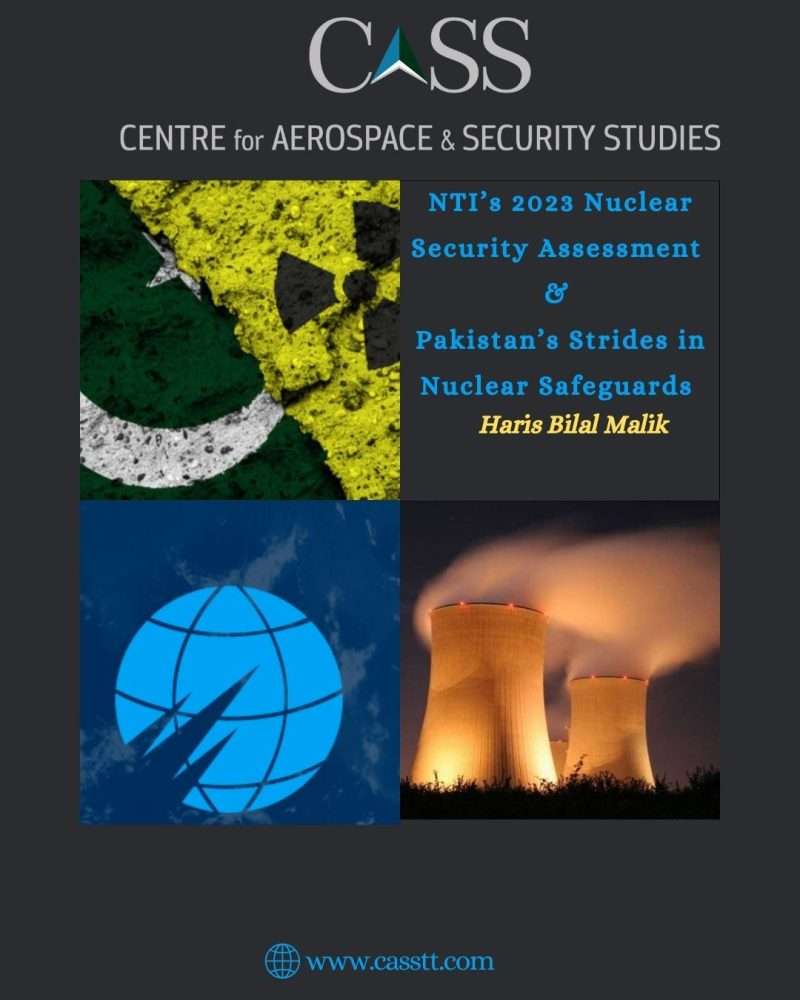In a world defined by intricate geopolitical dynamics and rapid technological advancements, the urgency of nuclear security has ascended to a paramount global concern. The dire ramifications of nuclear materials falling into the wrong hands, underscore the imperative of unwavering efforts to safeguard these assets. Within this landscape, the Nuclear Threat Initiative (NTI), a dedicated non-profit organisation focused on countering nuclear and biological threats, plays a pivotal role by providing actionable solutions to fortify global nuclear security efforts. At the heart of its endeavours lies the Nuclear Security Index (more commonly known as the NTI Index), an innovative assessment tool that evaluates and ranks countries based on their commitment to preventing and securing nuclear materials.
The NTI Index was first published in 2012, but its origins trace back to the commencement of the NSS (Nuclear Security Summit) process in 2010. The Index serves a broader purpose than just being a rating system. It functions as a platform for international collaboration, partnering with governments globally to facilitate substantial enhancements in nuclear security protocols. The approach adopted by the NTI extends beyond critique, fostering a proactive partnership in the pursuit of enhanced security practices.
Amid this backdrop, the recently unveiled 2023 Nuclear Security Index report highlights Pakistan’s notable strides in nuclear security. In a landscape where the stakes are high, Pakistan’s accomplishments are particularly noteworthy. With a secure material ranking of 19 out of 22, and a protect facilities ranking of 32 out of 47, to mention a few, Pakistan’s journey in nuclear security stands as a testament to its dedication and serves as a model for global cooperation on nuclear safety. Pakistan’s steady ascent in the NTI rankings – rising 18 points since 2012, with incremental gains every subsequent year, also underscores the value of insights which the Pakistan Centre of Excellence for Nuclear Security (PCENS), can offer to other countries. These credentials also rank Pakistan above India (20 out of 22 for secure material, and 40 out of 47 for protect materials), Iran (21 out of 22 for secure materials, and 46 out of 47 for protect facilities), and North Korea (22 out of 22 for secure material, and 47 out of 47 for protect materials), respectively.
At its core, the report evaluates highly enriched uranium and plutonium security against theft and the robustness of nuclear facilities against potential sabotage. Though specific rankings are not disclosed, the discussions revolve around Pakistan’s nuclear security journey. Notably, the country’s implementation of robust physical protection measures stands out. Pakistan has established a comprehensive national nuclear security regime aligned with global standards. Supported by robust institutions, regulations, and skilled personnel, the regime includes a stringent legislative framework governing nuclear materials and facilities. This commitment ensures concrete measures against unauthorised access to critical nuclear assets. This not only mitigates risks of theft and sabotage but also underscores the state’s commitment to the highest standards of nuclear security.
What distinguishes Pakistan is its engagement with the broader international nuclear security community. Actively participating in multilateral initiatives like the NSS and collaborating with the International Atomic Energy Agency (IAEA), Pakistan aligns its security measures with global best practices, displaying its willingness to harmonise efforts for the greater good.
The progress made is commendable, yet it is crucial to acknowledge the ongoing challenges and areas for improvement. The evolving nature of threats demands a dynamic approach, consistent reassessment, and enhancement of security measures. Herein lies the importance of fostering a stable national nuclear security culture – an ethos rooted in responsibility, accountability, and awareness that permeates all stakeholders within the nuclear industry. However, while Pakistan’s confidence in its nuclear security arrangements is justified, it is essential to remain vigilant and avoid the thin line towards complacency.
As a responsible nuclear-armed state, Pakistan’s efforts contribute significantly to global nuclear safety protocols and preventing the proliferation of nuclear materials. These endeavours assume a vital role in sustaining regional peace and security.
With the release of the NTI’s 2023 report, nations are directly challenged to update and enhance their nuclear security measures. Beyond just politics, there is a clear need for actionable steps: detailed reporting, sharing security protocols, and concrete collaborative initiatives to counter nuclear threats. Pakistan’s improved standing in the NTI Nuclear Security Index isn’t merely a statistic – it is a case study. It shows the tangible benefits of dedicated security efforts and should galvanise other nations to emulate such successes for a safer future for humanity.
Haris Bilal Malik is a Research Assistant at the Centre for Aerospace & Security Studies (CASS), Islamabad, Pakistan. The article was first published in Eurasia Review. He can be reached at [email protected]
Design Credit: Mysha Dua Salman





